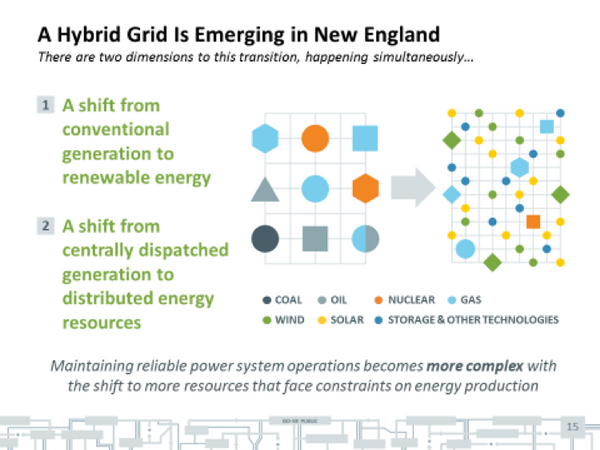New England electricity markets increasing in complexity
April 4, 2019

It has been 22 years since 1997 when Massachusetts decided to break up power monopolies and separating generators, transmission owners, and distributors. The competitive market has done well for the New England region creating reductions in wholesale electricity prices and generating $16 in efficient investment.
Recently, the markets’ structure has become more complicated given the growing renewable resources such as solar, wind, battery storage, energy efficiency, and demand response. The market is moving to a hybrid model where renewables are participating, which can suppress wholesale prices furthermore threatening other resources. The problem is there is a constant incentive to save as much money as possible.
Currently, New England’s ISO dispatches the resources which cost the least independent of their carbon footprint. A proposed solution to this discrepancy is carbon pricing, yet lawmakers have taken no steps to address this. The ISO is seeking for integrative solutions to work with what they currently have and extract value from their greatest foundations.
